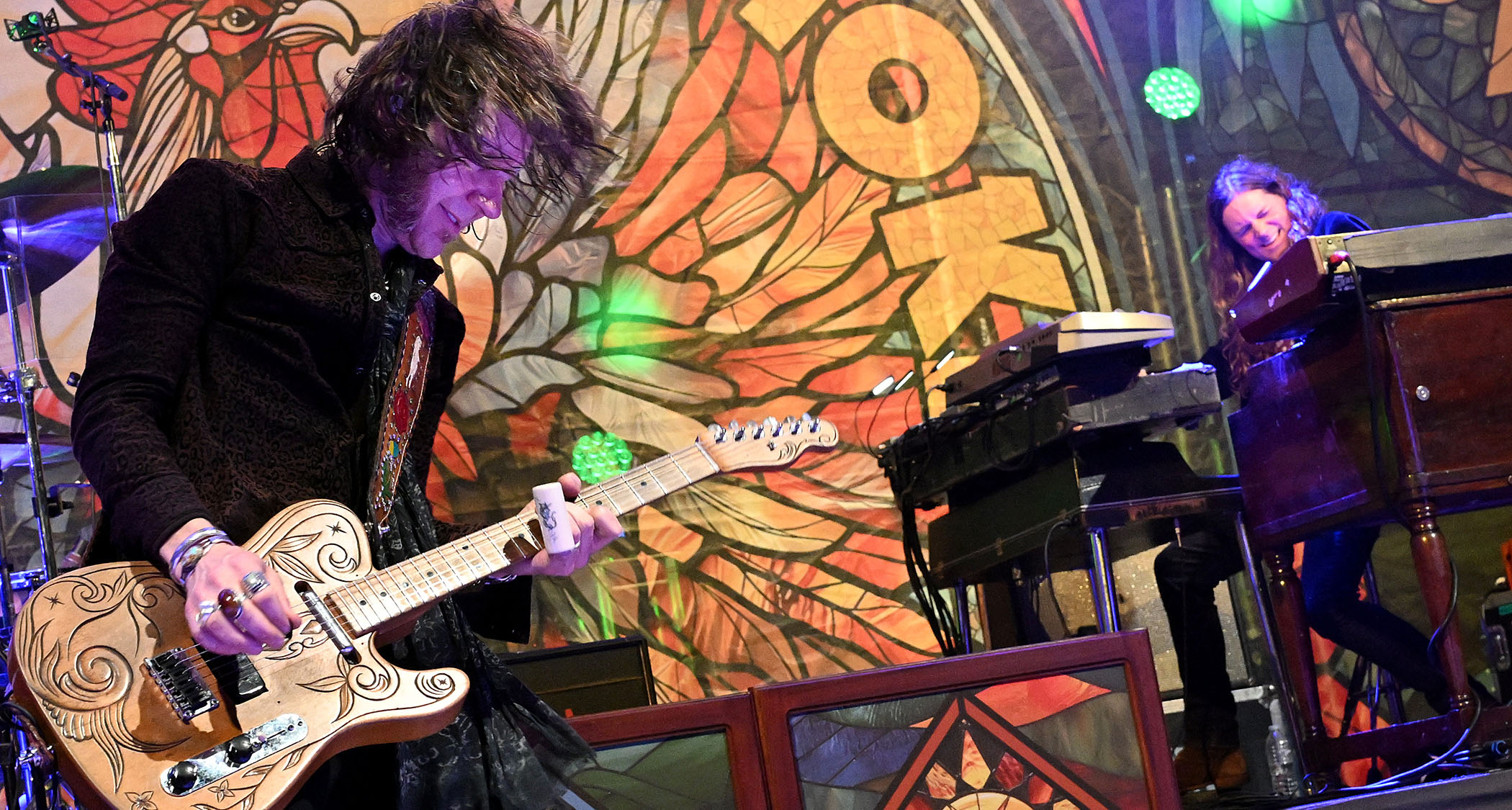"My first guitar was a beat-up flamenco-style acoustic that my grandmother had in her closet": Slash, Jimmy Page and more remember the guitars that set them on the path to six-string immortality
We dive into some of our classic interviews to rediscover the stories of how famous players got started - featuring Slash, Jimmy Page, Stone Gossard, Albert Lee and more
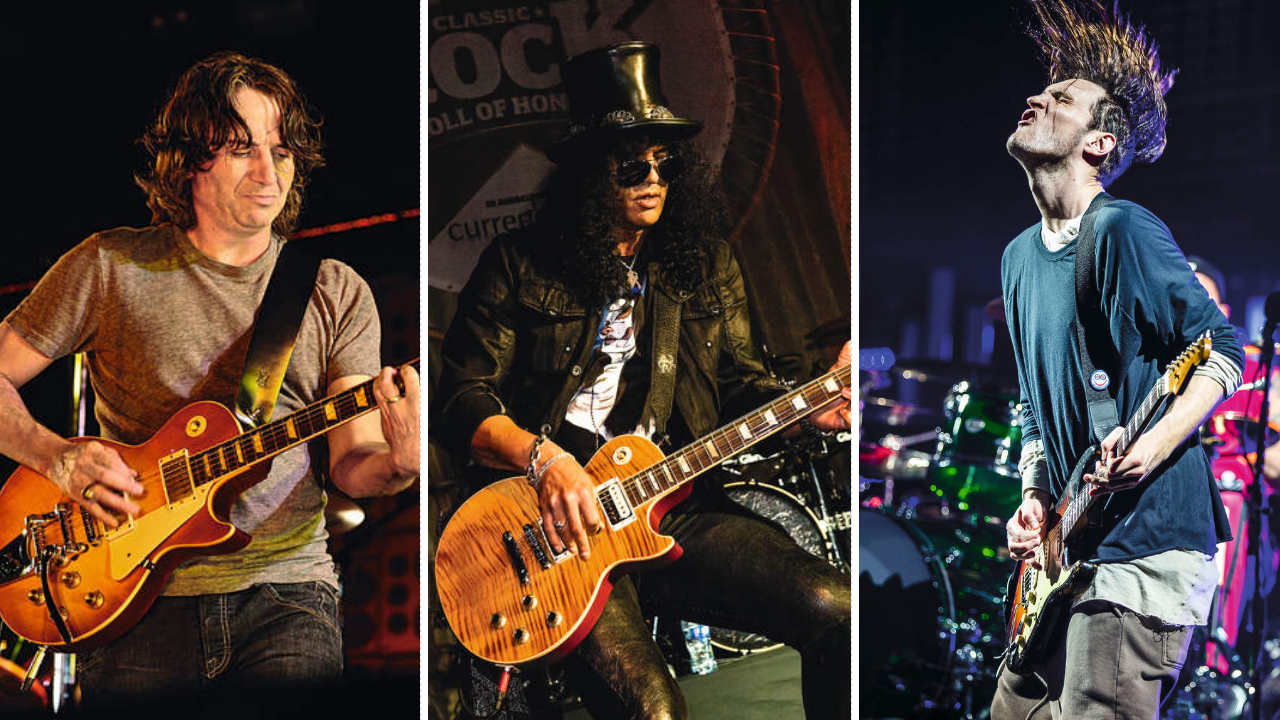
All the latest guitar news, interviews, lessons, reviews, deals and more, direct to your inbox!
You are now subscribed
Your newsletter sign-up was successful
Rockstars are larger-than-life characters who possess musical abilities that we mere mortals could only dream of – but the thing is, they all had to start somewhere. When you are at the very beginning of your guitar journey, it can be easy to forget that our guitar heroes weren’t born with the ability to rip a face-melting solo, each and every one of them started in the very same place as you. It’s humbling to think that at one point in time, the guitar god you idolize didn't even know how to hold the instrument that they have now become synonymous with.
Over the years, we’ve had the privilege of sitting down with many of our heroes, delving into their musical beginnings and the paths they took to become the stars they are today.
So, with that in mind, we’ve dug through old interviews, from Slash to Stone Gossard, Jimmy Page, Josh Klinghoffer and many more, to bring you the inspiring stories of their early guitar memories in the hope that it motivates you to realize your own dream and become the guitarist you've always wanted to be.
Slash
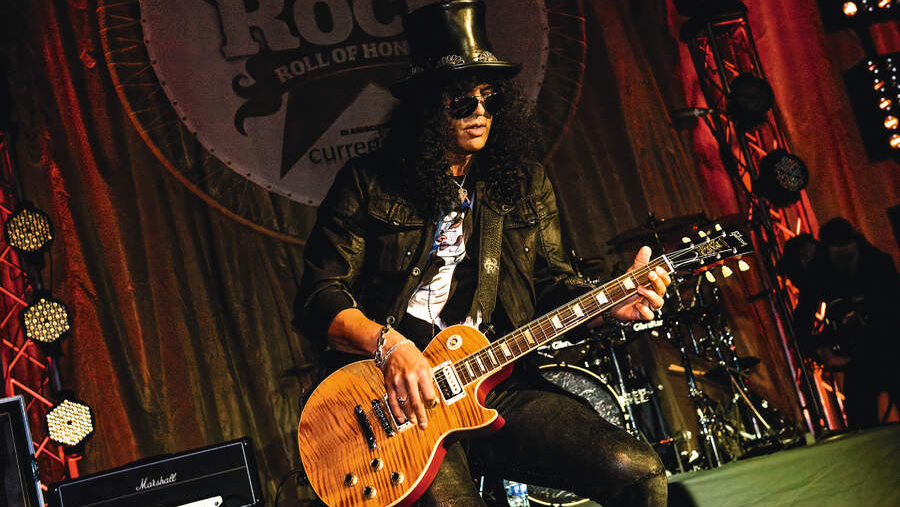
Speaking to our sister publication, Metal Hammer, back in 2010, the Guns N’ Roses axe man revealed exactly what made him pick up the guitar in the first place – and it’s a tale as old as time. An abandoned beat-up guitar paired with adolescent rebellion and just the right amount of musical inspiration was enough to pique a young Saul Hudson’s curiosity in the instrument and the living legend that is Slash was born.
“I was 15, I picked up the guitar in 1980. I picked up the guitar after I met [Guns N’Roses drummer] Steven Adler, who had an electric guitar at his grandparents’ house where he lived. When they left for work in the morning, we would ditch school and go and bang on his guitar through an amp and crank up Kiss Alive II.
“A guitar teacher played me a solo from Cream’s Disraeli Gears album, and I thought, ‘That’s what I want to do!’
“[My first guitar was] a beat-up flamenco-style acoustic that my grandmother had in her fuckin’ closet: she gave it to me.”
All the latest guitar news, interviews, lessons, reviews, deals and more, direct to your inbox!
So if you have a dusty old beginner electric guitar sitting in the back of a closet, maybe you should dust it off and give it a go. You never know, you may discover your hidden talent and go on to write one of the most recognizable guitar intros of all time.
Stone Gossard
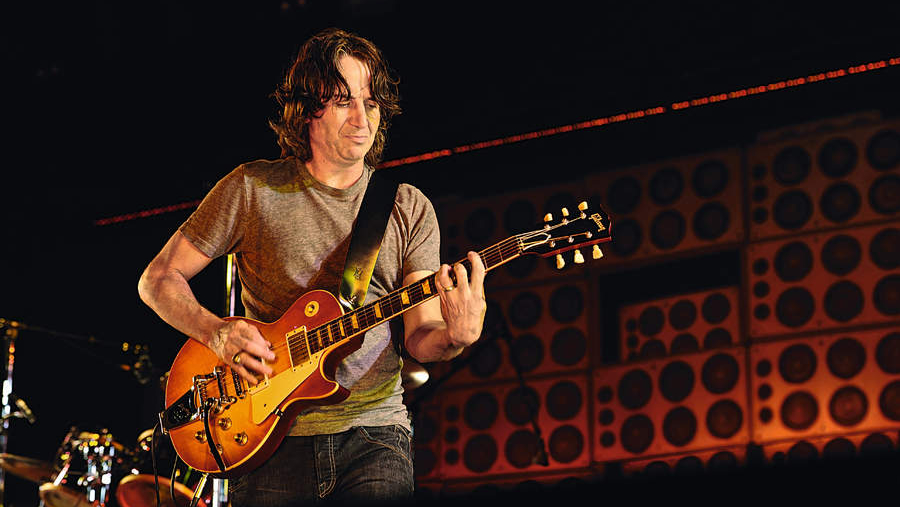
The Pearl Jam guitarist and grunge icon sat down with Total Guitar in 2012 to discuss the beginning of his guitar career, his love of all things punk, and how that shaped his early interest in the guitar.
“I think my first guitar was a white Les Paul knock-off. I had a guitar teacher named Kevin Callahan who I took lessons from – and he had a guitar and said I could buy it from him. At that time, particularly in Seattle, the big thrill and what excited me about music and playing was the fact I was hearing from my friends who were really into the Seattle underground scene and punk that you didn’t have to learn how to play. Just plug in and start a band: it’s awesome. And that sounded exciting.
“The idea that starting guitar lessons was going to be 25 years of hard labor and eventually you’d be able to play a quiet concert hall and people would clap: that was daunting. I wanted to be in bands and I wanted to play something like Ace Of Spades or something like The Stooges. Or even just some bad version of Iron Maiden – something that was heavy and made me lose my mind. That was the goal at that point.”
Gossard proves that to become a guitar player – and a successful one at that – you don’t need to bury your head in books, learning advanced theory, modes, or the circle of fifths. With the right attitude, determination, and a passion for music, you can become a well-rounded musician who inspires millions.
Jimmy Page
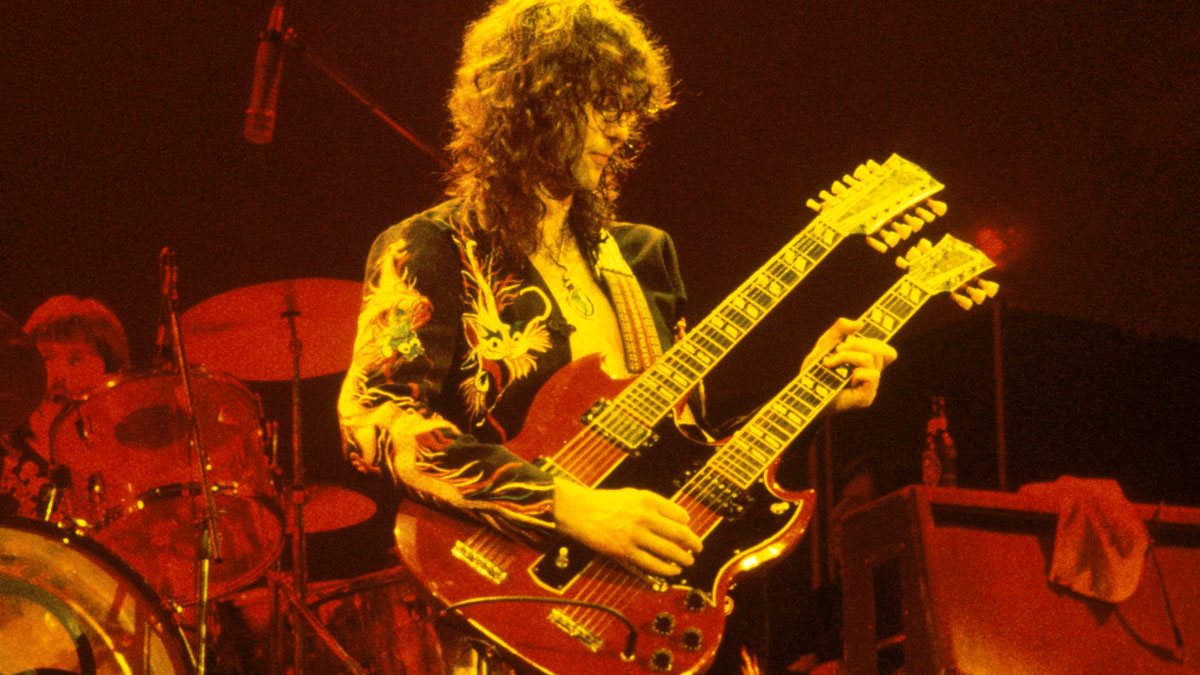
To many, Jimmy Page is the quintessential guitar hero and has inspired countless players to pick up the instrument. JImmy’s love of the guitar goes all the way back to the late ‘50s and was kick-started by a rather unusual-looking Grazioso electric guitar – although as he tells Guitarist in 2014, he would quickly progress to the coveted Fender Stratocaster.
“That’s the first electric guitar I got. The one before it, a Hofner, my dad bought, but… maybe he was psychic, and he knew what was coming. Because there’s a whole procession of guitars that come into my life over the next few years.
“I’m either 14 or 15, it’s 1958, or probably 1959, and that’s the first one, the Grazioso. It looked and felt like an electric guitar, even though it wasn’t a Fender. In fact, it had a tremolo arm on it, and I’ve got recordings of me playing on this thing, but you’d think this arm would break, actually. I heard somebody, a sort-of record collector, he told me, ‘You’ve got to hear this Carl Perkins stuff’ – and it’s terrific guitar playing, he’s a real stylist.”
Reminiscing about pining over a Fender, Jimmy told Guitarist, “Oh, this is a result of seeing and drooling over Gene Vincent & His Blue Caps, by the time they’re doing Hot Rod Gang [1958 movie] and they’ve got all those Fenders. It was oh… my… god. I’ve seen Bruce Welch talk about when he saw the Fender with Buddy Holly on The Chirping Crickets album, and he describes it exactly the same way as I felt, too, which is: that thing looks like it’s from outer space! What is it?! So, you find out, and then you see them, and they’ve been sprayed in almost hot-rod colors, and they’re all matching. It just looked so damn sexy! The Fenders were sexy to begin with, just beautiful, sculptural designs.
“I did get a Strat along the way. But guitars in those days, they weren’t all user-friendly, you know? Just because it was a Strat, didn’t mean to say it was like a Strat we know now. Then it goes from that to one of those orange Chet Atkins Gretsches, and then pretty much from there through to the Les Paul Custom."
When we think of Jimmy Page, it’s hard not to imagine him on the world’s biggest stages with a dangerously low-slung Les Paul around his neck, but of course, he had to start at the beginning just like us. By all accounts, his beloved Grazioso wasn’t a particularly great instrument, but that didn’t matter. The young Page just wanted to make music, and he was going to do it regardless of the guitar he had.
Nowadays, beginner guitars are of a much higher quality and standard. Even at the lowest end of the price range, guitars are playable, stylish, and sound great. So you have no excuses, really!
Albert Lee
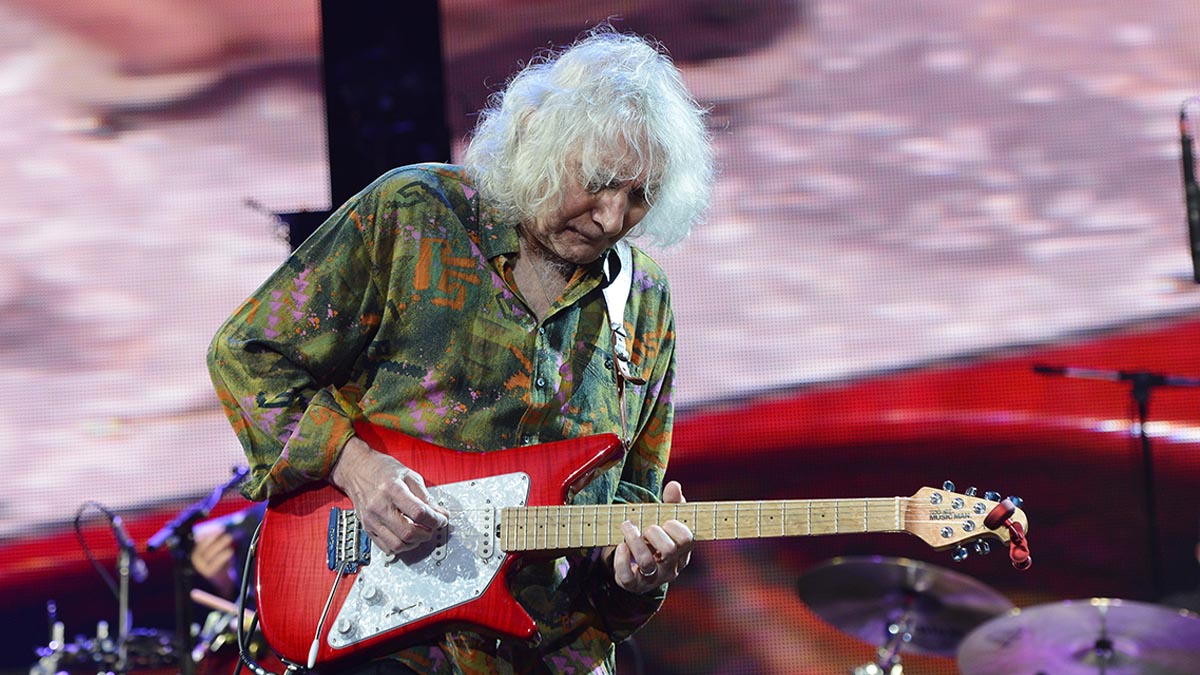
Now, you may think that if you don’t have a beginner acoustic guitar to hand, you’ll never be able to learn. Well, normally, that would be true, but that certainly didn’t stop Albert Lee. The English guitar virtuoso revealed to Total Guitar in 2016 that for the initial months of his guitar tuition, he didn’t even own his own six-string.
“I played guitar for 18 months without actually owning one. The first guitar that my folks bought for me was a very cheap Spanish guitar, which they paid about £3.10 for, but they soon realized I was getting on quite well teaching myself to play.
“So, at Christmas in 1958, they bought me a secondhand Höfner President, and that was a revelation. Here was a guitar that had a reasonable action and that was easy to play. Up until then, guitars were really cheap things that you managed to pick up, but this was really good.”
Again, this just shows the dedication of guitar players. We are a resourceful bunch, and when we put our minds to something, we tend to do it – even if we don’t have the essential tools, like a guitar, to hand.
Josh Klinghoffer
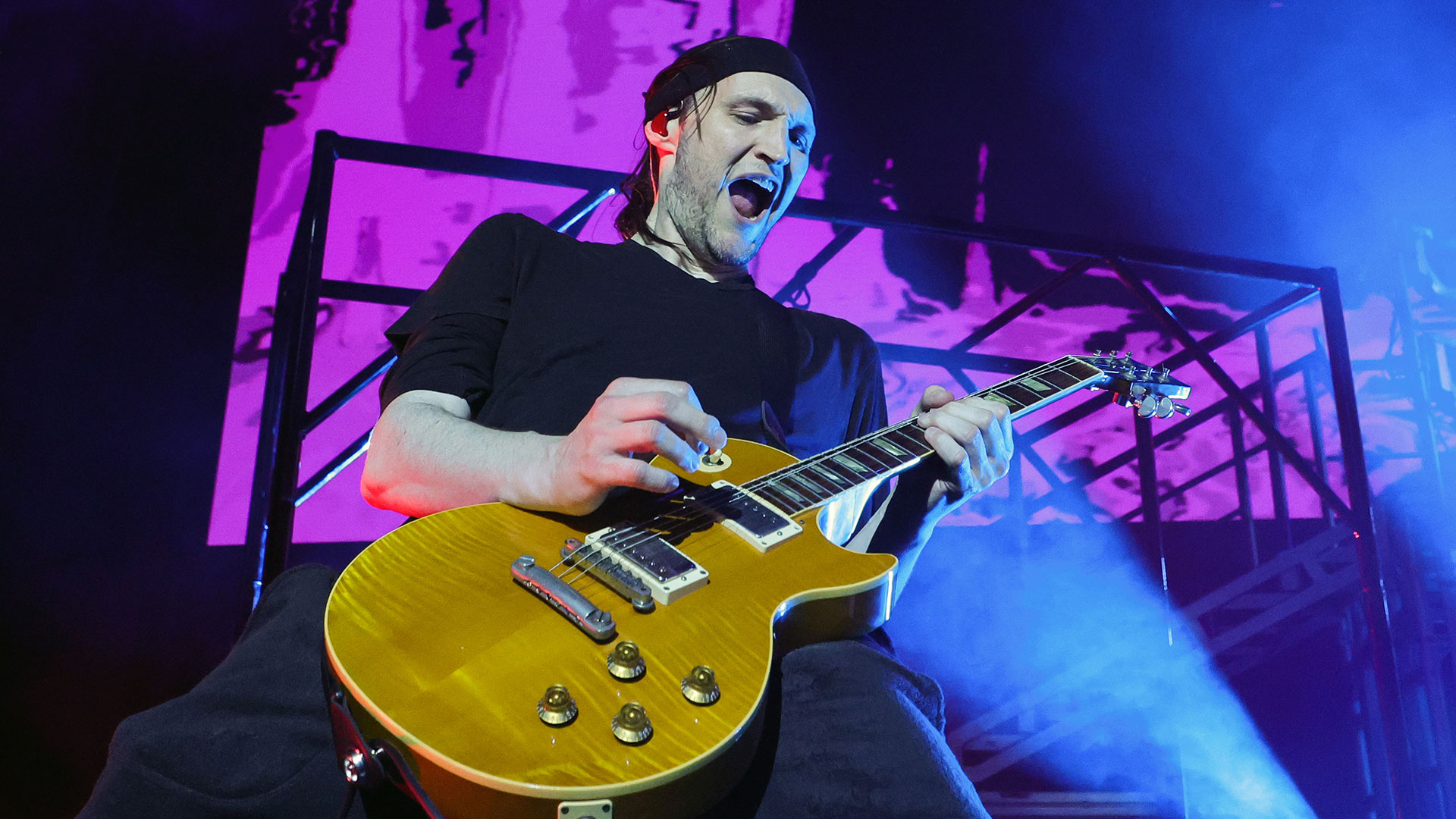
As a former member of Red Hot Chili Peppers and a touring member of Pearl Jam and Jane’s Addiction, Josh Klinghoffer has amassed an impressive collection of vintage Strats. However, speaking to Total Guitar, the guitarist revealed he still had a fondness for his first guitar – even if he didn’t treat it particularly well.
“The first guitar I owned really was a 1980s Fender Strat, that had Fender’s weird eighties-ness on it: like its version of a Floyd Rose. I got it out of [LA-based classified ads mag] The Recycler in the mid 1990s.
“I got into a big fight with my mother and my grandmother about dropping out of school at 15 and they enraged me so much – think my grandmother got really worked up – I threw the guitar and broke it. Instantly I knew that was a bad move.
“The first time I got a little bit of money after playing with the Chili Peppers, I found the guitar in my parents’ garage, and I brought it into my trusty guitar repairman, and he fixed it. It was as good as new. And now, it hangs in the Rock And Roll Hall Of Fame!”
So, look after your first guitars, kids. You never know; one day, it might be hanging in a museum, and you’ll need to explain how it got the embarrassing scars.
Alvin Lee
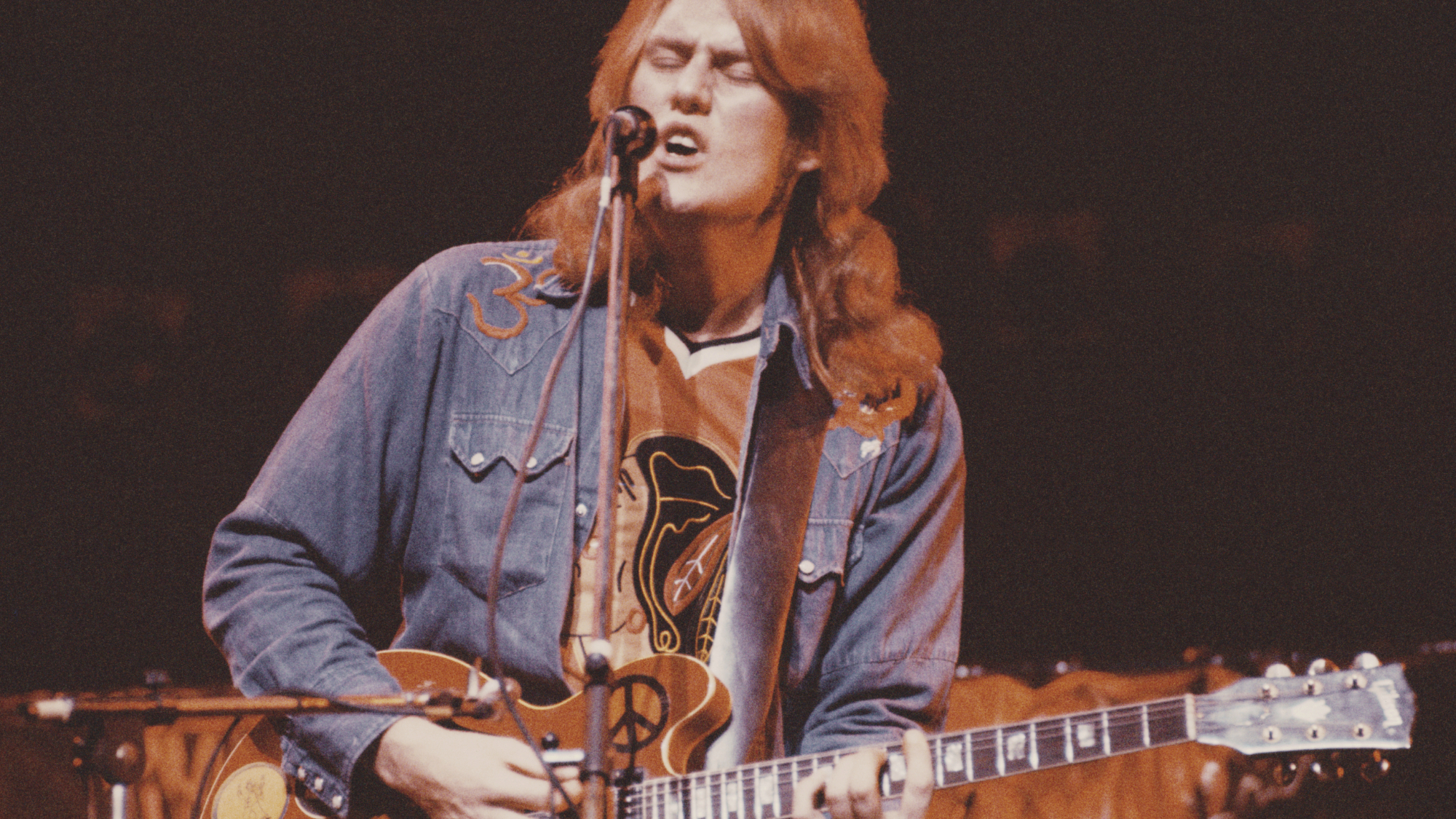
Sometimes all it takes to become a blues rock icon is a little spite. Ten Years After guitarist and singer Alvin Lee told Total Guitar that in an effort to prove his parents and guitar teacher wrong, he practiced for hours on end.
“My first guitar was a sunburst Broadway Plectrum guitar with no pickup. I learned rhythm for about a year – I used to play Django-style rhythm stuff. Then, at the age of 12, I bought a Guyatone solidbody with ‘crystal’ pickups. That was the first one I actually bought because the Broadway was my dad’s – he played a bit.
“When I first met my guitar teacher, Norman Barnacle, he and my folks worked out a schedule for lessons, and I asked, ‘How long will it take before I can play as good as you?’ They all laughed, and something inside me said, ‘Right, I’ll show ’em.’ That’s the first thing I remember, and maybe it helped to motivate me, because I practiced three or four hours a day.”
Beginner acoustic recommendations
So there you have it, that’s the story of how a few of the biggest names in guitar got their start. Now, if you fancy following in their footsteps, we’ve listed a couple of our favorite beginner guitars below that we think will give you the best possible start to your musical journey. You never know, your name may appear in an article like this in the near future.
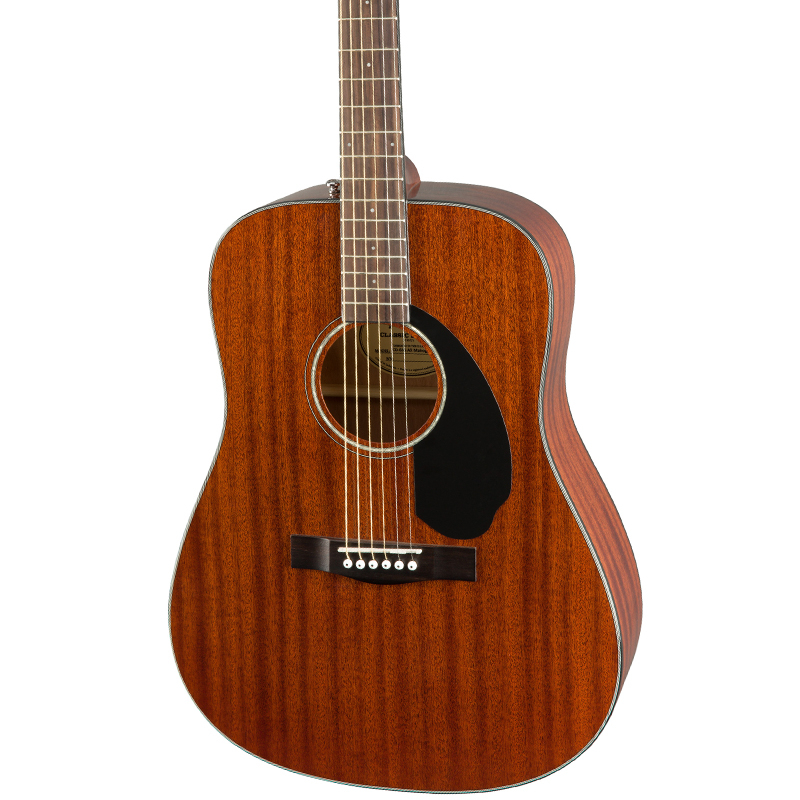
This Fender acoustic guitar offers high-quality construction and great sound at an affordable price. Our tests revealed that its all-mahogany build delivers a rich, well-rounded sound and comfortable playability.
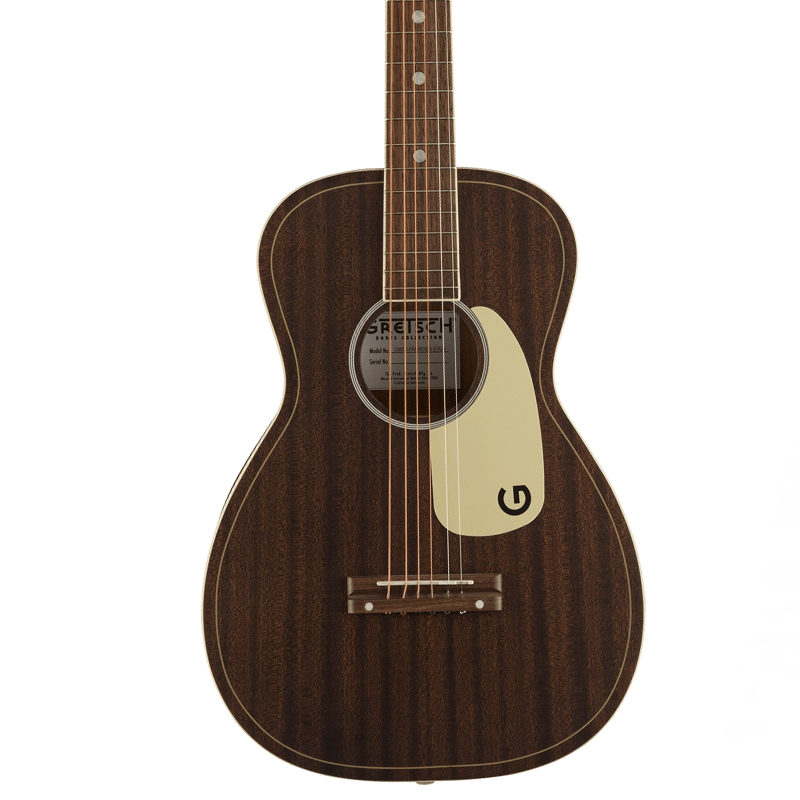
We absolutely adore the appearance of the Gretsch G9500 Jim Dandy. Its compact size and beautiful finish exude a vintage charm. However, for it to be featured, it must offer more than just good looks, and fortunately, the G9500 does not disappoint in playability and tone.
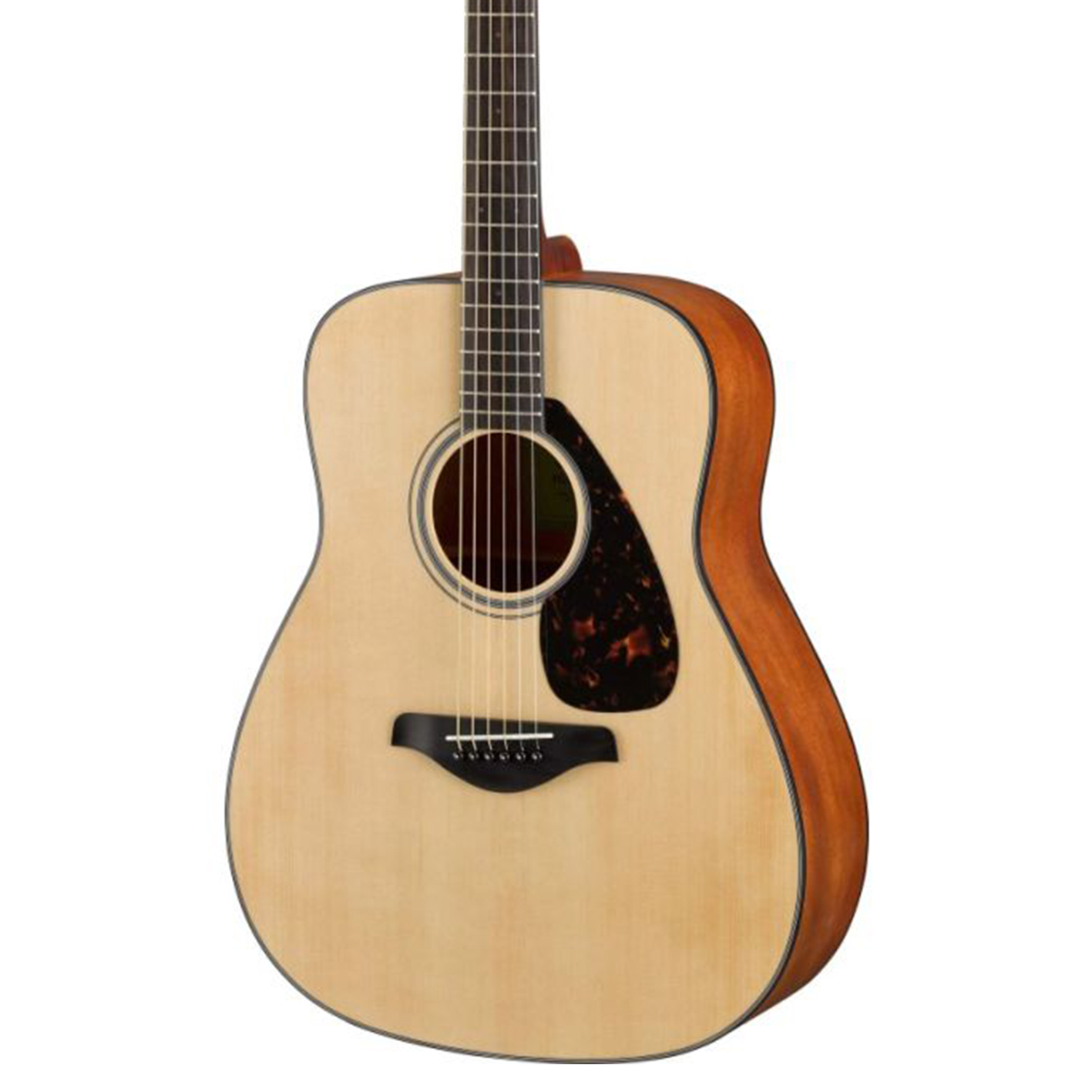
One of the lower-priced guitars we recommend, Yamaha’s FG800, is a well-established choice for beginners in the acoustic guitar realm. This instrument produces a sound that rivals that of more expensive guitars, and it reliably maintains its tune as well.
Beginner electric recommendations
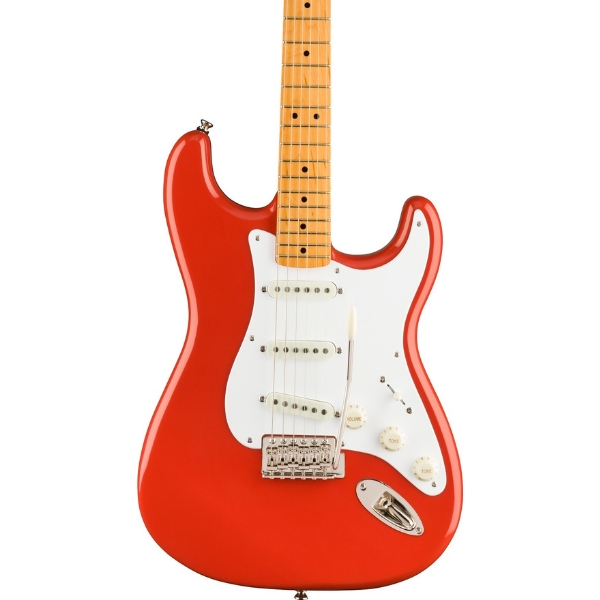
The Squier Classic Vibe '50s Strat is one of the best beginner electric guitars available. It features a comfortable neck profile and more than delivers the classic Strat sound most of us are craving.
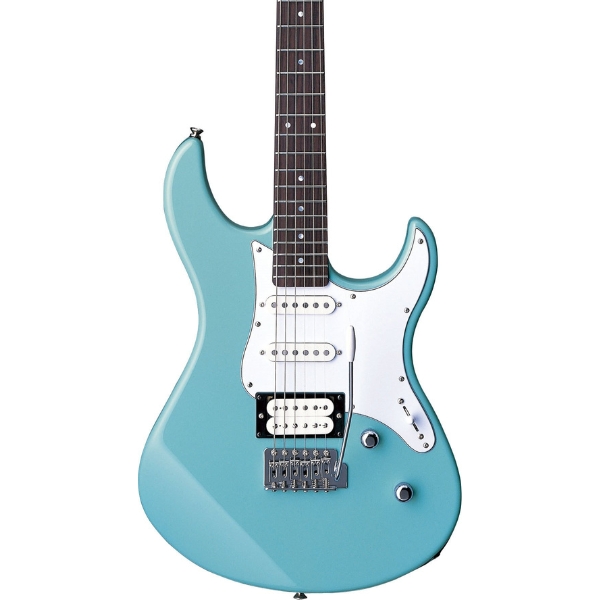
The Yamaha Pacifica 112V may not have the same recognition as bigger names like Fender and PRS, but this guitar is perfect for beginner guitar players, and its HSS pickup configuration and outstanding build quality make it an excellent value.
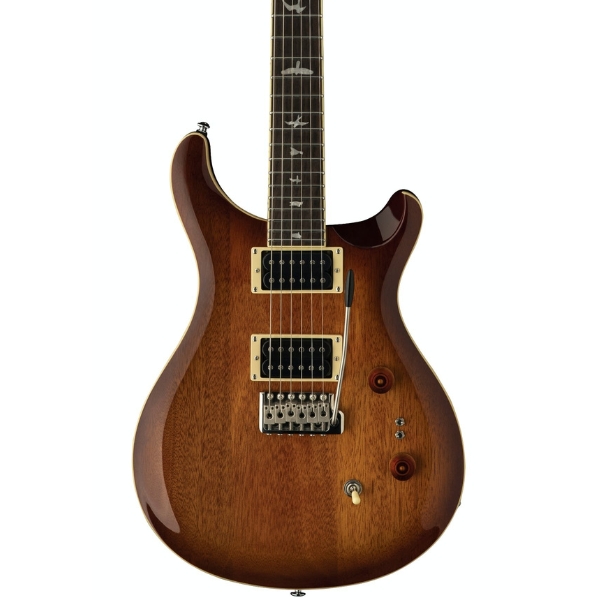
The PRS SE Standard 24 offers the lavish looks and playability of a PRS guitar at a more affordable price. The guitar features twin humbuckers that can be split into single coils, providing greater tonal versatility.
Explore more beginner-friendly buyer's guides
- Get started with the best guitars for kids
- Play more comfortably with the best guitars for small hands
- Need an amplifier? These are the best budget guitar amps under $500
- Try something new with one of the best beginner ukuleles
- Get all you need with the best accessories for beginners
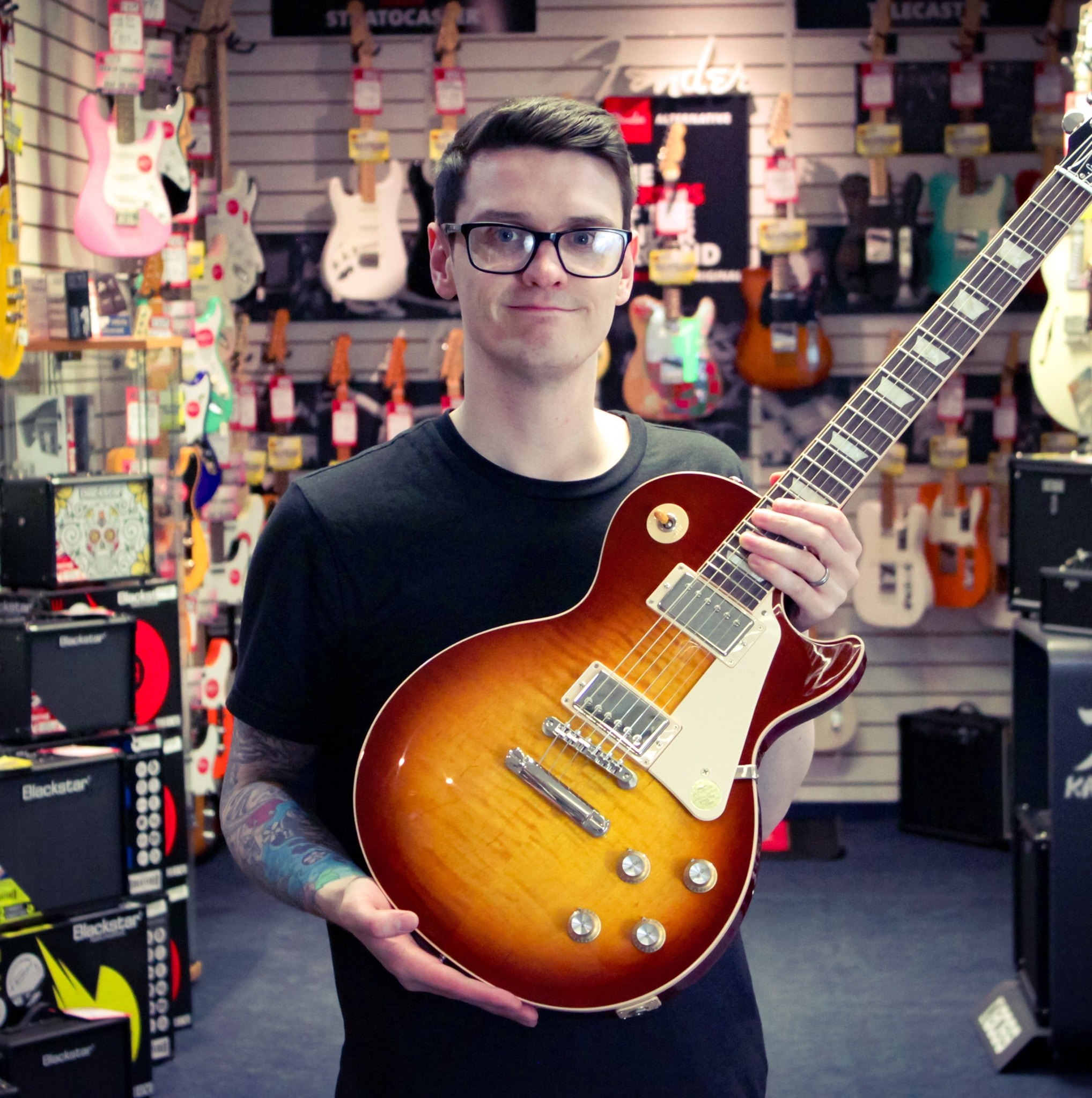
Daryl is a Senior Deals Writer at Guitar World, where he creates and maintains our 200+ buyer's guides, finds the best deals on guitar products, and tests the latest gear. His reviews have been featured in prominent publications like Total Guitar, Guitarist, Future Music magazine, and MusicRadar.com.
During his career, he has been lucky enough to talk to many of his musical heroes, having interviewed Slash and members of Sum 41, Foo Fighters, The Offspring, Thrice, and more. In a past life, Daryl worked in music retail. For a little under a decade, he advised everyone from absolute beginners to seasoned pros on the right gear for their needs.
Daryl is a fully qualified sound engineer, holding a first-class Bachelor's degree in Creative Sound Production from the University of Abertay.
